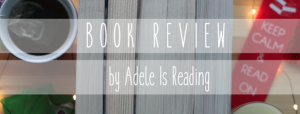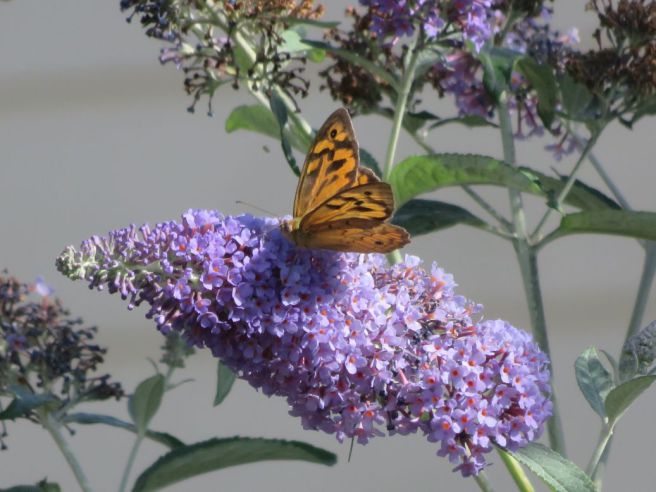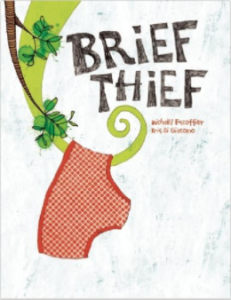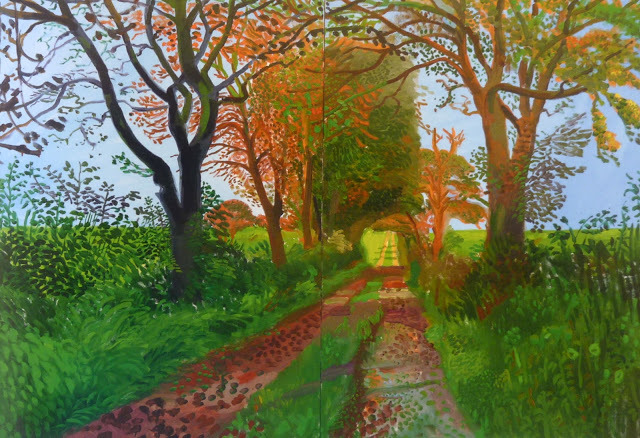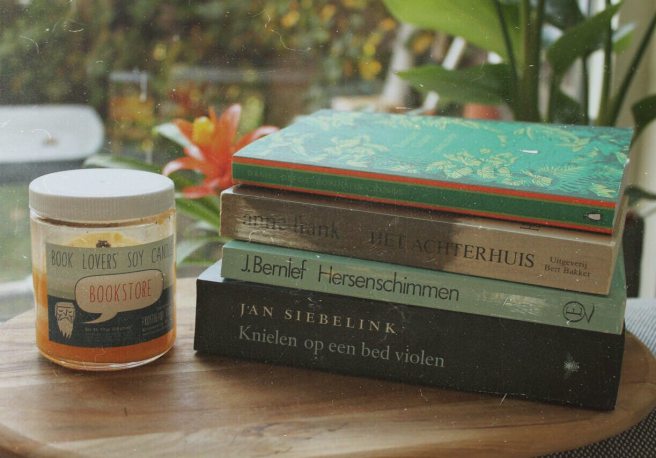
Although I promised myself not to buy any new books until I’ve gone through a good amount of books on my TBR, I have four “new” books to show you: one actual new book and three second hand books I got from Pieter’s grandparents. Most of these books are by Dutch authors, but luckily there are also English editions, so I can give you the English blurbs!
Robinson Crusoe by Daniel DefoeWho has not dreamed of life on an exotic isle, far away from civilization? Here is the novel which has inspired countless imitations by lesser writers, none of which equal the power and originality of Defoe’s famous book. Robinson Crusoe, set ashore on an island after a terrible storm at sea, is forced to make do with only a knife, some tobacco, and a pipe. He learns how to build a canoe, make bread, and endure endless solitude. That is, until, twenty-four years later, when he confronts another human being. First published in 1719, Robinson Crusoe has been praised by such writers as James Joyce, Virginia Woolf, and Samuel Johnson as one of the greatest novels in the English language.
(Goodreads)
While studying literature I’ve heard the title of this book coming by a couple of times. Of course I knew the name Robinson Crusoe, but I had and still have never read the book myself. I imagine it to be similar to Lord of the Flies by William Golding, but I guess I have to see for myself!
Diary of a Young Girl by Anne FrankDiscovered in the attic in which she spent the last years of her life, Anne Frank’s remarkable diary has since become a world classic—a powerful reminder of the horrors of war and an eloquent testament to the human spirit.
In 1942, with Nazis occupying Holland, a thirteen-year-old Jewish girl and her family fled their home in Amsterdam and went into hiding. For the next two years, until their whereabouts were betrayed to the Gestapo, they and another family lived cloistered in the “Secret Annexe” of an old office building. Cut off from the outside world, they faced hunger, boredom, the constant cruelties of living in confined quarters, and the ever-present threat of discovery and death.
In her diary Anne Frank recorded vivid impressions of her experiences during this period. By turns thoughtful, moving, and amusing, her account offers a fascinating commentary on human courage and frailty and a compelling self-portrait of a sensitive and spirited young woman whose promise was tragically cut short.
(Goodreads)
I see some ratings on Goodreads, without explanation, that kind of shock me to be honest. I don’t think this is a book that I could give any less than the full five stars, because after all, it’s a true diary written by a young Jewish girl who died right at the end of WWII. It’s true. It happened.
I have already read this diary many years ago, but I loved to have it in my possession and to give it a reread soon.
Out of Mind by J. BernlefThis intimate and affecting story of the dramatic decline suffered by an elderly man afflicted by Alzheimer’s disease draws its strength from the first-person narrative voice of the man himself. Initially lucid, if fatigued, 71-year-old Maarten Klein lives with his wife Vera in Gloucester, Mass. Dutch-born, they endured with difficulty the Nazi invasion of the Netherlands before emigrating to the U.S., where Maarten worked as a secretary for the Intergovernmental Maritime Consultative Organization. While Maarten has long considered himself a socially “marginal figure,” in other respects the Kleins’ lives are unremarkable but for his intensity of perception, sustained in sharply convincing fragments even as his faculties disintegrate. “I seem to lose words like another person loses blood,” he observes helplessly, and resolves to “invent a life for myself from minute to minute,” but ultimately becomes the sole and poignant “survivor of my own language.”
(Goodreads)
This is a book that came by while discussing Dutch literature in high school and I thought it sounded very intriguing. I really have neglected reading Dutch literature and I really want to pick it up again!
In my Father’s Garden by Jan SiebelinkIn My Father’s Garden is the gripping story of a father-son relationship, in which the father becomes obsessed by a fire-and-brimstone Calvinism. Hans Sievez has a profoundly religious experience at a decisive moment in his life. He is convinced he has been in direct contact with God. During the ensuing quest for eternal life, he loses control over himself, and his contact with his surroundings. This ultimately threatens his marriage and his relationship with his two sons. The local Calvinist congregation increases its power over him. Jan Siebelink describes the battle of a man who is no match for the irrational persuasions of faith.
In My Father’s Garden is a moving novel of a love that is gradually overwhelmed, but will never disappear.
(Goodreads)
This is another book that was briefly discussed in Dutch class in high school, but I’ve never read it myself! I hope it’ll be a somewhat “easy” read and not too surrealistic, like a lot of Dutch literature seems to be like.
Have you read any of these books? What did you think of it? Share this post:- More

